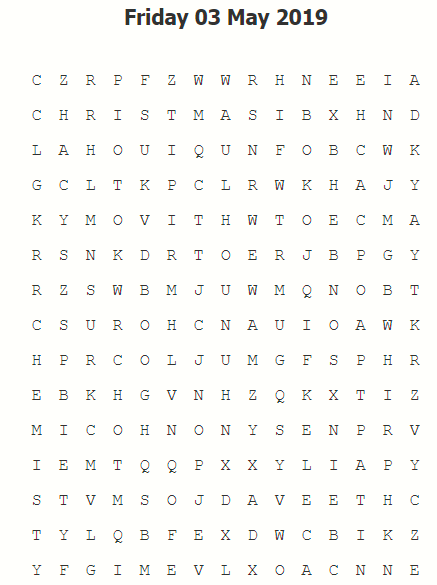17 May 2019
There is an activity for words with an ‘ly’ suffix for spellings this week.
This is due in on Friday 23 May 2019.
friendly / regretfully / angrily / anxiously / forcefully / cautiously / suspiciously / peacefully / mostly / peculiarly
There is also an interactive activity available for these words on Spelling Shed. Your child has their login details for this website. You can find the link for this activity inside your child’s ‘favourites’ section within the program or by following the QR code, below.

We’re learning our 3 times tables this week.
17 May 2019
This week, we’re focussing on alternative ways to spell the oo phoneme. Children will be tested on eight out of the ten words.
| June |
| rule |
| Tuesday |
| rescue |
| knew |
| threw |
| flew |
| grew |
| doom |
| too |
10 May 2019
The words are all homophones or near homophones again this week. A homophone is a word which sounds the same as another word but has a different meaning. They are often, but not always, spelled differently.
This week, there are only five words to learn but it’s really important to practise spelling these words in context so children are choosing the correct version.
there, their, they’re
are, our
10 May 2019
Spelling this week is a list of words with the ‘ly’ suffix. This is a recap of something your child has learnt in Year Two.
There are some rules when adding this suffix to a word.
- The suffix ‘-ly’ starts with a consonant letter, so is added straight on to most root words.
- If the root word ends in consonant letter ‘y’, the ‘y’ is changed to ‘i’, but only if the word is more than one syllable.
- If the root words ends in ‘le’, the ‘le’ is changed to ‘ly’.
friend, kind, clumsy, exact, angry, careful, dead, part
This list will be tested on Friday 17 May 2019.
We are learning our 8 times tables.
10 May 2019
For this week’s spellings, we’ve all chosen some spelling patterns we know we find more difficult and have recorded them in our homework books. This is where we need to focus our spelling practice over the weekend. (The spelling test will be on Monday 13 May).
10 May 2019
This week’s spelling list has been formed by asking Year 5 for some spellings that they always seem to have difficulty with! It seems there is good reason though – some of these are really tricky! Just log on to Spelling Shed as normal and as always, come in to see me if you need any help. Make sure it’s before next Thursday, though!
I’ve been very impressed by Y5’s enthusiasm and effort when using Spelling Shed and we’re definitely starting to see it pay off in the classroom. Top work, Y5.
03 May 2019
This week, all the words are homophones or near homophones. A homophone is a word which sounds the same as another word but has a different meaning. The are often, but not always, spelled differently.
| here hear |
| quite quiet |
| one won |
| hole whole |
| blue blew |
| night knight |
| break brake |
| our hour |
03 May 2019
Commonly Misspelled Words
According to Spelling Shed, the words on this week’s list have been some of the most commonly misspelled words over the last seven days in year five. Just log in as normal and the activity you need to complete should pop straight up. As always, if you don’t know what any of the words mean, find out!
All children have been given their Spelling Shed login to use at home but please come in to see me if you’re having any problems.
Friday 03 May 2019
Spellings this week looks at words with the /k/ sound spelt ‘ch’.
Children have a series of words to learn. We have discussed their meaning in class but this may need to be checked at home. There is also a word search to complete for this homework. This is due in on Thursday 10 May 2019.

ache / choir / chemist / christmas / anchor / echo / chorus / chemistry
We are learning our 8 times tables. Please make sure your child is practising their division facts as well as the multiplication facts each week.
26 April 2019
This week, all the words have the ee phoneme at the end of the word which is spelled ey.
| key |
| donkey |
| monkey |
| chimney |
| valley |
| honey |
| money |
| journey |